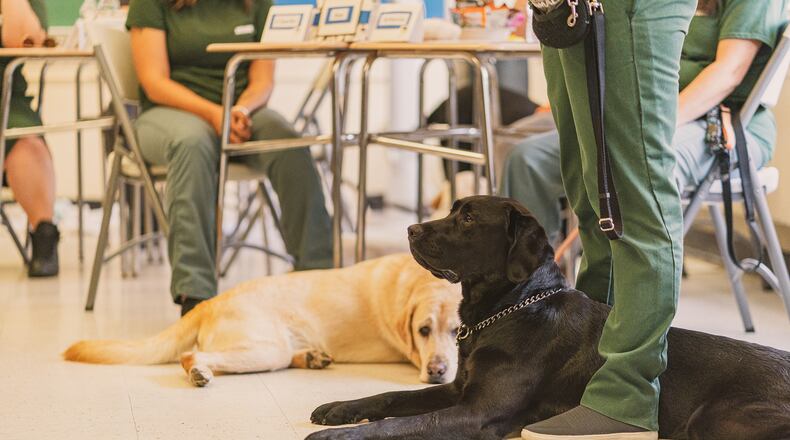New York Police Department First Deputy Commissioner Benjamin B. Tucker still remembers the deadly gang-related arson when he was a beat cop in Brooklyn in the 1970s, and the unsolved murder of a man he found lying on the pavement.
In 2019, when the nation’s largest police department grappled with a record wave of officer suicides, Tucker brought those memories with him as he and other department brass brainstormed how to alleviate job-related stress.
Enter Jenny and Piper — newly-minted yellow Labrador retriever detectives with the NYPD’s Employee Assistance Unit. Their cuteness and caring demeanor will help connect with officers who face growing tension on the streets and may be quietly suffering from work or personal issues.
Around the country, law enforcement agencies increasingly are turning to emotional support dogs — a departure from K-9 programs where animals search for drugs, weapons and explosives or control crowds – to help police offices cope with the pressures of their jobs.
In the wake of the Jan. 6 breach of the U.S. Capitol, for instance, four police therapy dogs from two Northern Virginia departments spent time with U.S. Capitol Police officers and National Guard soldiers.
“Law enforcement officers go to work every day and do a job most people wouldn’t do for a million bucks,” said Patrick Yoes, national president of the Fraternal Order of Police, who described how officers on patrol have been villainized. “I think it took a toll on every officer.”
In Fairfax County, Va., three police dogs make several rounds of random check-ins with officers each week, while also responding to critical incidents and any situation that may be difficult for officers.
The dogs tend to disarm officers who could benefit from help but might not otherwise feel comfortable talking freely with a colleague, said Lt. Christopher Sharp, who commands the Incident Support Services unit.
According to Blue H.E.L.P., an organization devoted to promoting mental health for law enforcement, at least 89 officers have died by suicide so far this year. That is compared 174 in 2020.
The police therapy dogs, Yoes said, are “sorely needed,” especially if used in a way that keeps officers from feeling like they will face reprisal for seeking help or counseling, particularly at a time when attacks on officers across the country are on the rise.
Shayna Jacobs writes for the Washington Post.
About the Author
Keep Reading
The Latest
Featured



